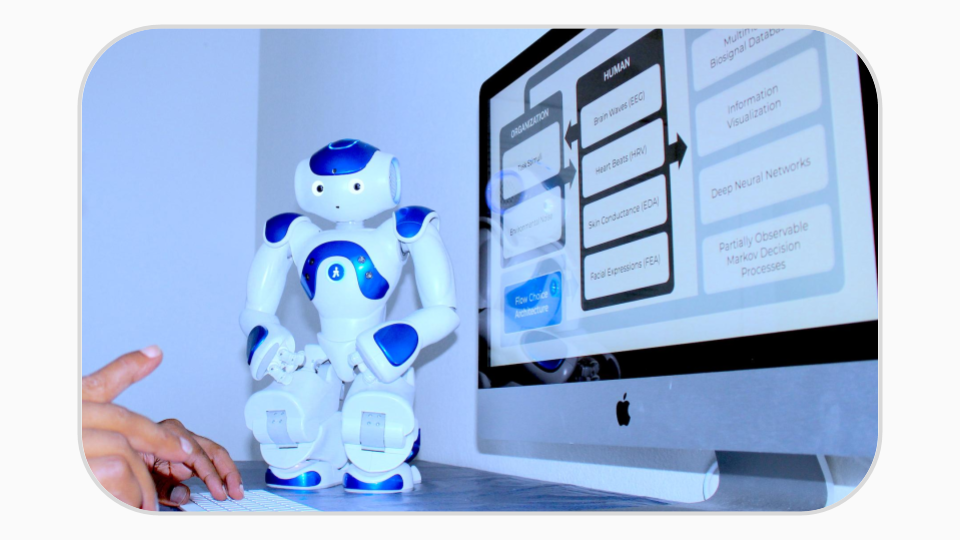High performance is desired in the workplace, even with swarms of robots on their way in the Fourth Industrial Revolution. Our research focuses on the population of knowledge workers, who are typically expected to sit in one space for extended periods while performing deep, intellectual and creative work. For those who work predominantly using computers, there is growing scope to augment task performance using artificial virtual agents. This trend is evident in the adoption of voice-based, and gesture-based applications that allow users to issue vocal or gestural commands while their hands are occupied on primary tasks. Even though multimodal interaction may yield more productivity than solely mouse and keyboard interactions, it may still impose a significant cognitive load on the user.

We propose the modeling of a smart motivational humanoid assistant that is personalized to interact with human users without explicit commands, and instead via wireless sensors that can perceive the operator’s brain activity. The humanoid engages with the human using effective nudges through neurofeedback.